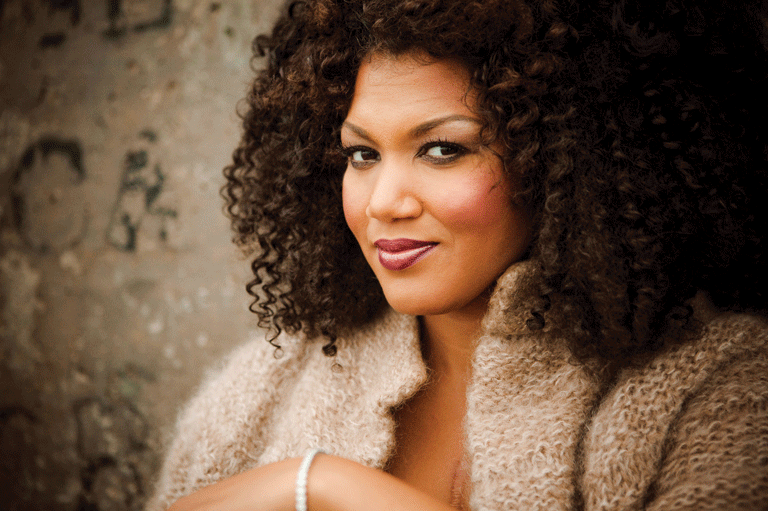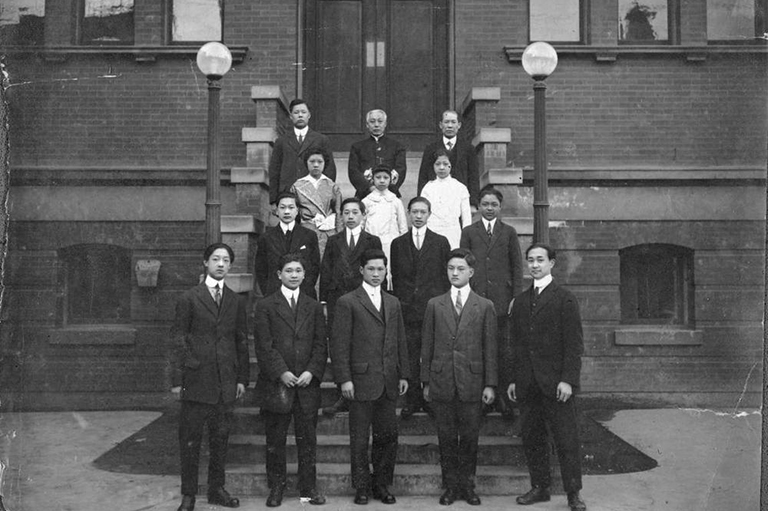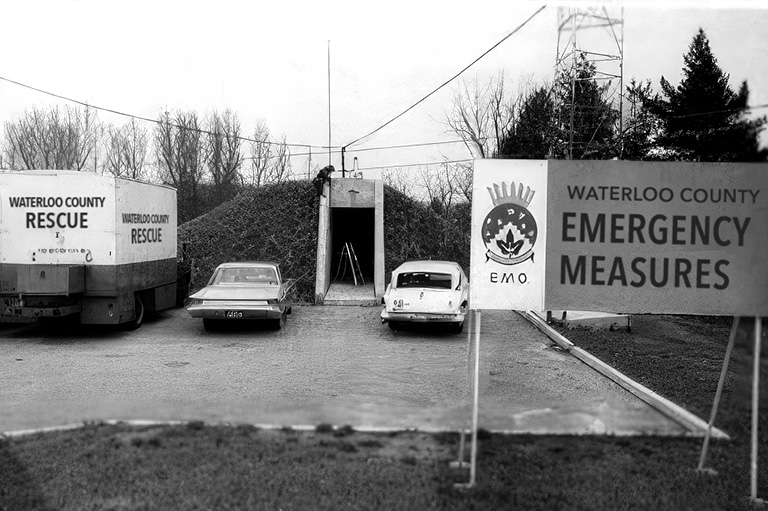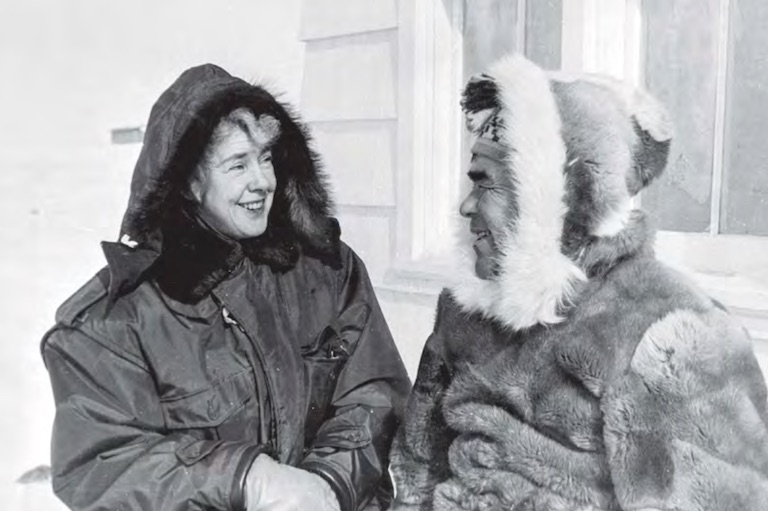Lost Stories Found
Think of the stories you learned in history class. Now consider what stories were left out of the texts. How many stories are waiting to be told in the margins of history?
Shining new light on these important moments is the goal of the Lost Stories Project, which combines historical research and rigour with the boundless creativity of Canada’s artistic community.
Article continues below...
-
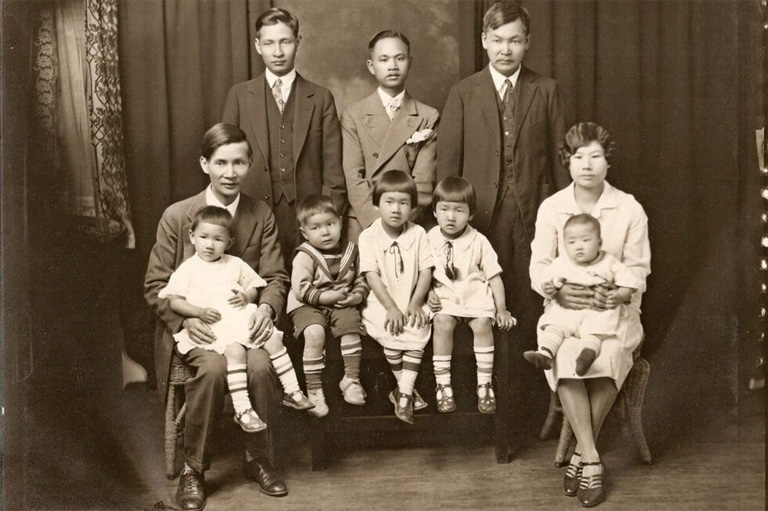 Regina restaurant owner Yee Clun (seated at left with a child on his lap) and his family pose for a photo, 1927 [Yee Clun and Regina’s “White Women’s Labour Law”].Courtesy of the Lost Stories Project
Regina restaurant owner Yee Clun (seated at left with a child on his lap) and his family pose for a photo, 1927 [Yee Clun and Regina’s “White Women’s Labour Law”].Courtesy of the Lost Stories Project -
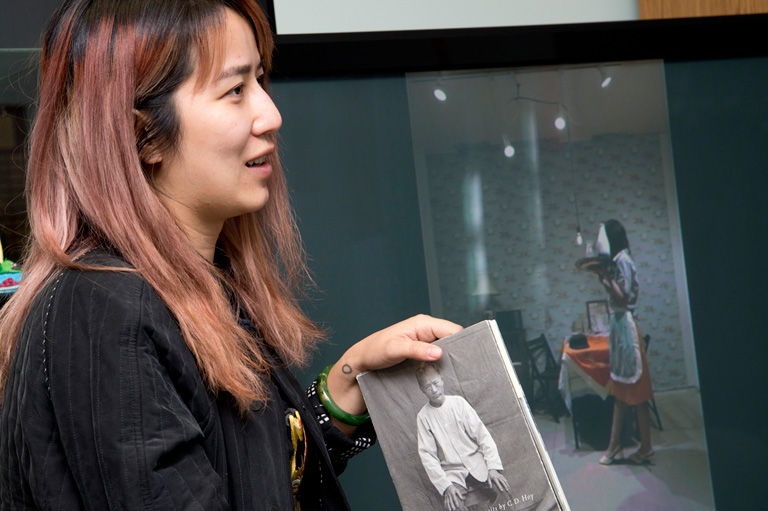 Artist Xiao Han presenting the progress of the project at the Chinese Cultural Centre of Saskatchewan and work in progress in the studio [Yee Clun and Regina’s “White Women’s Labour Law”].Thomas Bartlett / Courtesy of the Lost Stories Project
Artist Xiao Han presenting the progress of the project at the Chinese Cultural Centre of Saskatchewan and work in progress in the studio [Yee Clun and Regina’s “White Women’s Labour Law”].Thomas Bartlett / Courtesy of the Lost Stories Project -
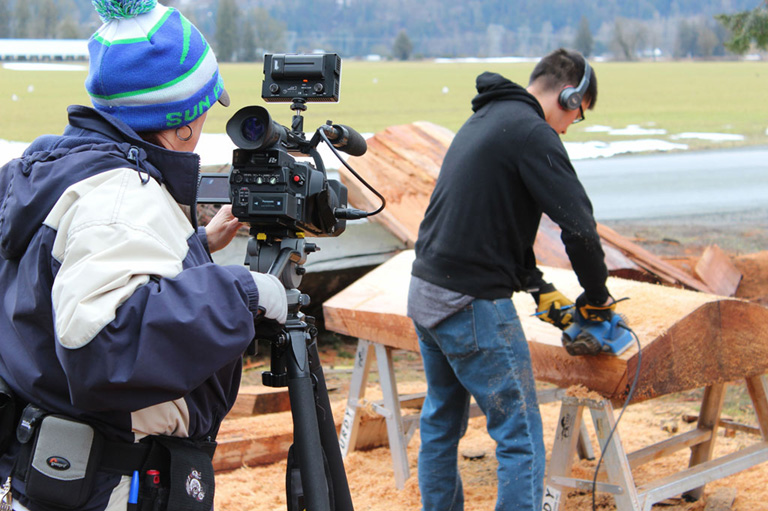 Artist Terry Horne at work on the bank of the Fraser River and at Chilliwack Secondary School, February–March 2017 [The Kidnapping of Stó:lō Boys During the Fraser River Gold Rush].Sandra Bonner-Pederson / Courtesy of the Lost Stories Project
Artist Terry Horne at work on the bank of the Fraser River and at Chilliwack Secondary School, February–March 2017 [The Kidnapping of Stó:lō Boys During the Fraser River Gold Rush].Sandra Bonner-Pederson / Courtesy of the Lost Stories Project -
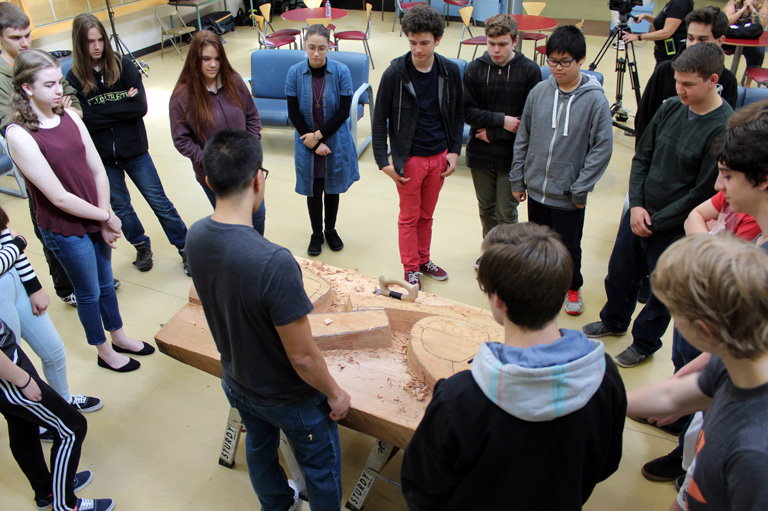 Filmmaker Sandra Bonner-Pederson documenting the artist Terry Horne at work at Hope Secondary School where some students had the chance to work on the carving, 2017 [The Kidnapping of Stó:lō Boys During the Fraser River Gold Rush].Sandra Bonner-Pederson / Courtesy of the Lost Stories Project
Filmmaker Sandra Bonner-Pederson documenting the artist Terry Horne at work at Hope Secondary School where some students had the chance to work on the carving, 2017 [The Kidnapping of Stó:lō Boys During the Fraser River Gold Rush].Sandra Bonner-Pederson / Courtesy of the Lost Stories Project -
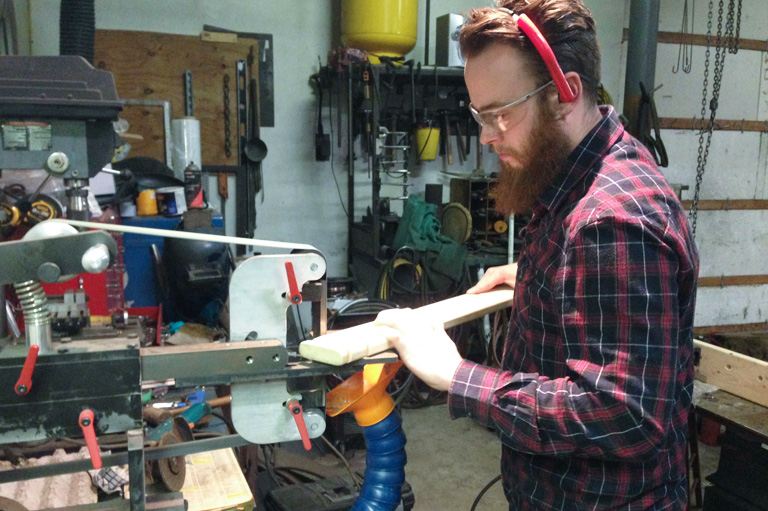 Artist Couzyn van Heuvelen in his studio, making a few tests to get a sense of the scale of objects before ordering materials [From the North to Ottawa’s Southway Inn].Kaitlyn Bourden / Courtesy of the Lost Stories Project
Artist Couzyn van Heuvelen in his studio, making a few tests to get a sense of the scale of objects before ordering materials [From the North to Ottawa’s Southway Inn].Kaitlyn Bourden / Courtesy of the Lost Stories Project -
 During an afternoon of filming, artist Marika Drolet-Ferguson and filmmaker Julien Cadieux discussed the progress of the project and the series of photographs under development [Leprosy on Sheldrake Island, New Brunswick].Marika Drolet-Ferguson / Courtesy of the Lost Stories Project
During an afternoon of filming, artist Marika Drolet-Ferguson and filmmaker Julien Cadieux discussed the progress of the project and the series of photographs under development [Leprosy on Sheldrake Island, New Brunswick].Marika Drolet-Ferguson / Courtesy of the Lost Stories Project
“It’s an opportunity to think more deeply about stories we don’t know and reflect on why we don’t know them,” said Ronald Rudin, a history professor at Concordia University in Montreal.
Rudin is also the director of the Lost Stories Project and leads a team of academics, artists, and filmmakers in turning the lost stories into dynamic, engaging and informational multimedia experiences.
The project invited submissions from the public for lost stories to tell. Artists were then invited to explore the stories through inexpensive, site-specific works of art. All the while, film crews recorded the creative process.
Rudin said community involvement is crucial to the project’s success.
“History, still to a large extent, is written about people with power or influence,” he said. “And people who had other kinds of stories, they didn’t always have the means to make them well-known. They were often people who didn’t have power. These projects are being developed with those communities. It’s part of making the history we present more inclusive and reflecting those voices.”
The first lost story was the tale of Thomas Widd, a deaf man who in the late-nineteenth century founded Montreal’s Mackay School for the Deaf.
Since then, the Lost Stories team has explored the legacy of leprosy treatment at New Brunswick’s Sheldrake Island; the role an Ottawa hotel has played in assisting visitors from the Far North; the case of Yee Clun, a Chinese restaurant owner in Regina who in 1924 fought a racist law requiring him to obtain a permit to hire white women; and the tragic story of several Stó:lo boys who were kidnapped by white miners during the Fraser River gold rush of 1858.
The four Lost Stories episodes have been made possible by funding from the federal Canada 150 Signature Event Fund, created to mark the country’s sesquicentennial.
We hope you’ll help us continue to share fascinating stories about Canada’s past by making a donation to Canada’s History Society today.
We highlight our nation’s diverse past by telling stories that illuminate the people, places, and events that unite us as Canadians, and by making those stories accessible to everyone through our free online content.
We are a registered charity that depends on contributions from readers like you to share inspiring and informative stories with students and citizens of all ages — award-winning stories written by Canada’s top historians, authors, journalists, and history enthusiasts.
Any amount helps, or better yet, start a monthly donation today. Your support makes all the difference. Thank you!
Themes associated with this article
Advertisement
You might also like...
With 7 uniquely curated newsletters to choose from, we have something for everyone.

